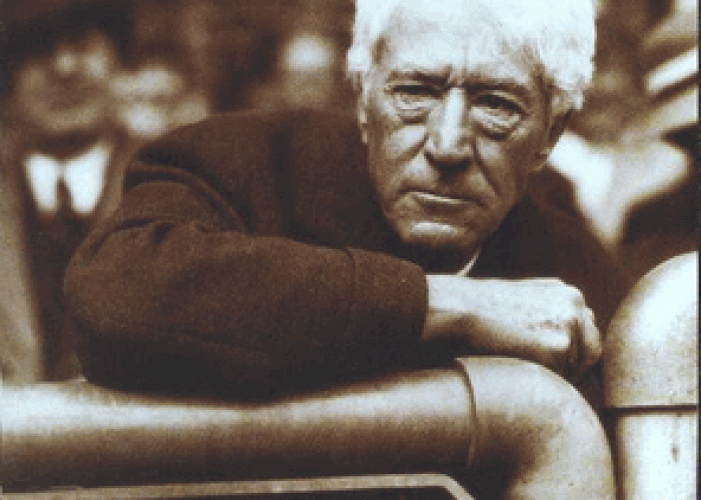On November 12, 1920 — Major League Baseball Owners unanimously elect Kenesaw Mountain Landis Commissioner for seven years. The selection of the tough-minded jurist is seen as a move by the owners to restore the public’s faith in the national pastime after being tarnished by the 1919 World Series scandal, a transgression that involved eight White Sox players who were paid off by professional gamblers to throw the Fall Classic against Cincinnati.
Landis reluctantly accepted the role, while remaining a federal judge (with his $7,500 federal salary deducted from the baseball salary of $50,000). Under the terms of the contract, Landis could not be dismissed by the team owners, have his pay reduced, or even be criticized by them in public. He also had nearly unlimited authority over every person employed in the major or minor leagues, from owners to batboys. Otherwise known as absolute power.
Handing over absolute power was difficult for the owners, but by 1920 another scandal broke out after an August 31. Throughout September although baseball has having a marvelous season gambling and fixed games were on fans minds. Through late September, the 1920 American League season had been one of the most exciting on record, with the White Sox, Cleveland Indians, and New York Yankees dueling for the league lead. By September 28, the Yankees were close to elimination, but the White Sox and Indians were within percentage points of each other. On that day, however, the eight players, seven of whom were still on the White Sox, were indicted. They were immediately suspended by White Sox owner Charles Comiskey. The Indians were able to pull ahead and win the pennant, taking the American League championship by two games over Chicago.
By 1919, the influence of gamblers on baseball had been a problem for several years. Historian Paul Gardner wrote,
Baseball had for some time been living uneasily in the knowledge that bribes were being offered by gamblers, and that some players were accepting them. The players knew it was going on, and the owners knew it was going on. But more important, the players knew that the owners knew—and they knew the owners were doing nothing about it for fear of a scandal that might damage organized baseball. Under such conditions it quite obviously did not pay to be honest.



